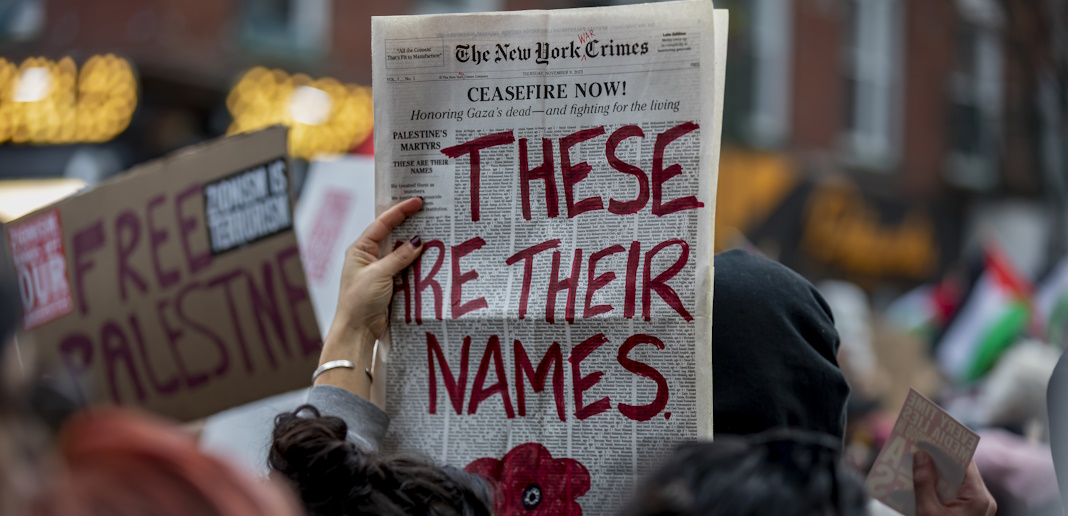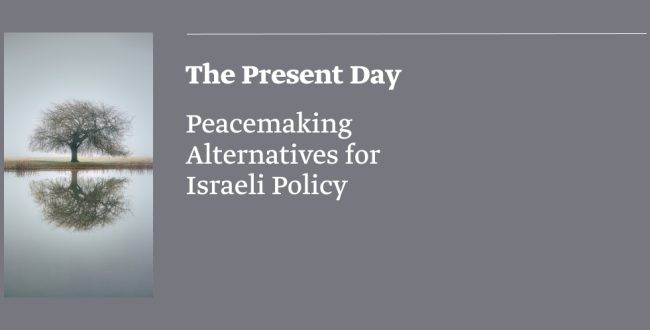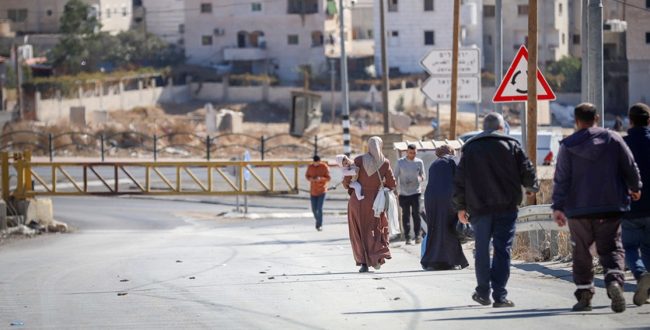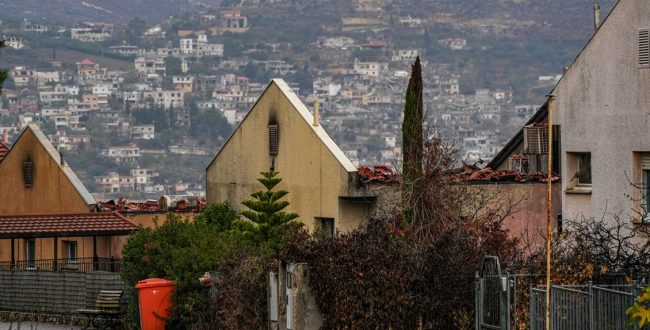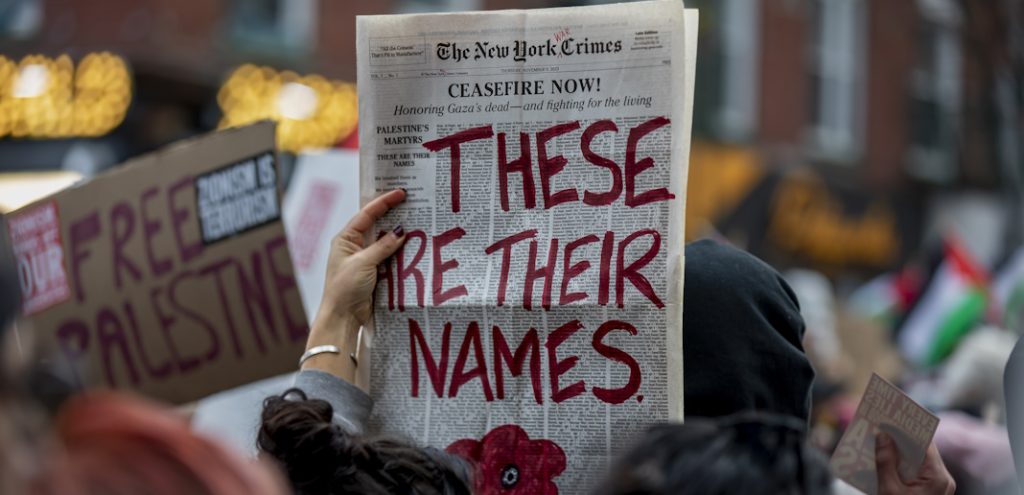
Since the start of the war in Gaza, Israel has been accused of committing Genocide in Gaza— directly or indirectly, one can reject these accusations but it is worthwhile to consider what things look like from the international perspective.
Since the start of the war in Gaza, Israel has been accused of committing Genocide in Gaza. One can reject these accusations by claiming they are merely a display of antisemitism that seems to be surfacing lately throughout the Western world, or of political anti-Zionism and Israel-hatred. Regardless of whether such claims are justified or not, it is worthwhile to consider what things look like from an international perspective.
The starting point for this discussion are the dramatic facts reported in international media outlets: in the first 50 days of the war, the Gazan Ministry of Health reported more than 14,000 deaths in Gaza as a result of IDF bombings, of which more than 10,000 are women and children. That is a massive scope of destruction, and the share of women and children, who are presumed to be not involved in the hostilities, is especially high.
Immediately at the outset of the war, Israel halted the supply of electricity to the Gaza Strip and so too with the supply of water (10% of all water usage in Gaza). The latter was renewed (and only partially) a week later, only after pressure from the American administration. Israel also announced that it would prevent humanitarian aid from entering the Strip. The IDF called on civilians from the north of the Strip to evacuate southwards for their own protection, but it did not commit itself to allowing them to return at a later stage (a statement of that nature was issued only later, once again under American pressure).
In light of these realities, there are those who claim that Israel is attempting to annihilate the population of Gaza directly, or indirectly by creating the unlivable conditions that will lead to extermination; or, at the very least, they argue, Israel is committing “ethnic cleansing”, meaning, massive forced displacement of the Palestinian population of the Gaza Strip, with no return in sight. Scuh actions constitute the international crime of genocide (murder and extermination with the intention of bringing a complete or partial annihilation of an ethnic group as such), or at the very least, they constitute crimes against humanity (a category that includes, among others, murder, extermination or forcible transfer, when those such acts are committed as part of a widespread or systematic attack directed against a civilian population, based on a governmental or institutional policy. Hence, there is no doubt that the 7th of October massacre and the abduction of Israeli civilians into the Gaza Strip, themselves constitute crimes against humanity).
The importance of context
One could dispute the data. For example, is the Palestinian Ministry of Health a reliable source or not? While the Israeli spokespersons may in real time contest those numbers, experience has shown that in the aftermath of all offensives in Gaza since 2009, the IDF Spokesperson has eventually affirmed the number of Palestinian casualties reported from Gaza, with some minor differences. Moreover, one could argue that the total number of casualties does not differentiate between persons directly participating in the hostilities (“combatants”) those who do not (“civilians”). The former are, according to International Law, legitimate targets, and it may be the case that some women and minors who were killed were in fact combatants). But the significant dispute regards the significance of the widespread harm to the civilian population. To answer this, we must address the context in which this harm was caused.
The widespread harm to civilians is taking place within the context of warfare: the IDF is fighting to protect Israel’s population and territory. It is fighting an organization whose main mode of operation is from within a civilian population, using civilian population as defensive shields in violation of international law. However, such violations do not nullify the prohibition on intentionally targeting civilians. When Israel strikes, it must direct its attacks only to military targets (objects or sites that are being used for military purposes or Hamas militants) and it must minimize the incidental harm caused to civilians to the bare minimum — ensuring that any such harm is not disproportionate to the anticipated military advantage. However, the “bare minimum” is relatively large under these circumstances.
The same principle, intentional infliction of harm on civilians is prohibited, but that the presence and needs of civilians do not make enemy forces immune to attack — applies also to other measures taken by Israel: the imperative to allow humanitarian aid is, according to international law, subject to ensuring that the aid would not be averted to military purposes. Israel is concerned, not without grounds, that the aid will not reach the population that is in need of it but that it will end up in the hands of Hamas, allowing it to strengthen its military efforts. With regards to calling on the population to move southward, it is a precautionary measure that, according to international law, Israel is permitted and perhaps even obligated to take, when possible, in order to limit the exposure of civilians to the dangers of hostilities. In other words, the harming of civilians is incidental, is unavoidable and proportionate to the military targets at issue.
Those who claim that Israel is committing international crimes also offer a context. The context, according to them, is the ongoing siege on Gaza, the never-ending occupation, settler violence and violence of Israeli security forces in the West Bank; and conversely, Palestinians political aspirations. Hamas’ actions on October 7th are described as a single event of “incursion by Palestinian armed groups on 7 October 2023, including criminal attacks against Israeli civilians”, or sometimes even ignored completely. So too the ongoing fighting of Hamas from that day on and the danger of further infiltrations and potential massacres — which Hamas explicitly threatens to carry out — are completely absent from the narrative.
International law requires that the fighting forces be instilled with the laws of war, and the training routine in the IDF includes appropriate training. But what stands out in the media are not the military orders, but the statements of politicians. And in these you can find quite a few calls to commit acts that are national crimes
It must be emphasized that international crimes never deserve “context” or justification. One cannot justify the massacre of the 7th of October and the taking of hostages as a legitimate counter-offensive to the struggle against ongoing occupation. The ends do not justify the means. So too with repeated missile attacks on residential settlements. Similarly, even the actions of Hamas on the 7th of October — infiltration into Israel, murder and abuse and destruction of towns and villages — do not give Israel the green light to commit international crimes. However they do establish Israel’s right to defend its territory and its population, while abiding by the rules of war.
The importance of intention
There is no doubt of the illegality (and criminality) of Hamas’ actions, for its intent to harm civilians of the State of Israel is explicit. The question regarding the legality of Israel’s actions in the Gaza Strip is more complex: is the widespread harm to civilians merely unintentional, incidental, necessary and proportionate in a situation of armed conflict? Or, is it an intentional attack against civilians, or incidental harm to civilians that is intentionally disproportionate, therefore constituting an international crime?
The answer to that question has a lot to do with intention: what is the intention of commanders when they order each specific attack; what drives the Israeli policy on refusing access of humanitarian aid into Gaza; and does Israel intend to allow the Gazan population to return to the north of the Gaza strip, a return which will require not only freedom of movement but also the existence of housing and subsistence infrastructure?
The official stance of the State of Israel can be found in a document published by the Ministry of Foreign Affairs dealing with international law that applies to the conflict between Israel and Hamas. The document emphasizes that the IDF operates in accordance with international law and that its forces are committed to the principles of distinction and proportionality.
In various military memoranda, the IDF’s Chief of Staff iterated that the goal is “protecting our home” whilst operating in accordance with the IDF’s Code of Conduct and values”. The Chief of Staff emphasized that the IDF is fighting the Hamas organization, not the population of Gaza. The IDF wants the people of Gaza to go through this war with the least harm possible. We can presume and hope that this is indeed the spirit of the directives given to lower-ranking command and soldiers in the battlefield. There is seemingly nothing now about such statements.
International law requires the military to instruct the forces about the laws of armed conflict, and the IDF includes this in its training. However, what is prominent in media publications we are all exposed to — soldiers, the public in Israel and international public opinion — are not the military directives but rather the statements by politicians, in which calls to commit acts that constitute international crimes are indeed heard. The problem is not only one of optics. What we are witnessing is the expressed desire to see the suffering of civilians, and even worse — declaring policies that are intended to harm civilians or calling for such policies to be put in place. Such rhetoric lends significant weight for those claiming Israel is committing international crimes.
The most severe expressions in that regard are those of the government who, according to international law, speaks for the State in the international sphere: the Prime Minister called for taking revenge at “Amalek” namely the enemy population, in its entirety; Defense Minister Yoav Galant ordered “a complete siege of Gaza”. In the Ministry of Intelligence a document was prepared that advised to “relocate” the Gazan population to the Sinai Peninsula, and the Minister of Intelligence expressed a similar notion in the media. Minister of Heritage Amichai Eliyahu declared that “there is no such thing as non-combatants in Gaza”.
the list of vocal coalition members’ statements calling on total and utter destruction in Gaza is long: MK Zvi Sukkot, Chair of the Knesset’s sub-committee on Foreign Affairs and Defense: “We will take revenge and dedicate our lives to taking revenge on them with no reckoning”; MK Tali Gottlieb: “No mercy! We must raze and flatten Gaza”; MK Nissim Vatori “Burn Gaza”; MK Yizhak Kroizer: “the entire Strip ought to be razed and that everyone in it needs to be sentenced to death”; MK Ariel Kallner: “Right now, one goal: Nakba! A Nakba that will overshadow the Nakba of 48”; MK Galit Distel-Atbaryan: Erase all Gaza off the face of the earth… A vengeful and cruel IDF is needed here”. Prime Minister Netanyahu reprimanded a number of ministers and rejected their statements; Israel’s embassy had to explain why “the Intelligence Minister is “not an important minister”. However, what was said was said.
The importance of Leadership
Not every declaration by every coalition member trying to appease their electoral base is worthy of attention or nor does it merit legal significance. It is especially important to differentiate between declarations of politicians, and declarations of decision-maker and of senior military officers as well as commanders in the battlefield. But indeed, some statements were made by senior leadership and within the IDF itself: Commander of COGAT (Coordination of Government Affairs in the Territories) Major General Ghassan Alian addressed the people of Gaza and said: “Hamas has turned into ISIS, and the residents of Gaza, instead of being appalled, are celebrating … Human animals must be treated as such. There will be no electricity and no water [in Gaza], there will only be destruction. You wanted hell, you will get hell.” The Chief Rabbi of the Northern Command Amichai Friedman talked about destroying Sodom and Gomorra when he said that “we will eliminate evil and uproot Hamas, we will destroy our enemies, destroy all of them”.
The Chief of Staff announced, rightly so, that “IDF operations will follow the stages of war and its goals, as they were defined by the Israeli government”. However, when the goals of the war are not clear; when the President declares that “there is no truth in the statement that there are un-involved people in Gaza” because the population is guilty of not rebelling against Hamas, and following suit, Israeli ambassador to the UN says that Gazans should be left to their own devices since they elected Hamas; when the Minister of Defense declares a siege, the commander of COGAT grants license to kill Gazans and a military Rabbi, a representative of a military unit that is co-creator of the IDF Code of Ethics and of its ideological characteristic, calls on complete annihilation of Gazans — it’s hard to argue with the feeling that the IDF’s purity of arms is deteriorating.
The IDF must distance itself as much as possible from statements of a criminal nature. At the very least, the IDF’s Spokesperson and perhaps the Chief of Staff himself, must clearly and firmly reiterate the stance of the military’s leadership at every opportunity. The Prime Minister and Defense Minister should too declare unequivocally that the policy of the State of Israel is to differentiate between civilians and combatants, to take all measures in order to avoid harming civilians and to accept such harm only when it is necessary and proportionate to the anticipated military advantage of the specific military attack. If statements by ministers and politicians are merely heated, thoughtless fits of rage that hold no weight, it would be best if the Prime Minister and chair of the coalition would make clear to their fellow government members that they are exposing Israel and IDF soldiers to unnecessary legal scrutiny. If they cannot restrain their vengeful and cruel attitudes, it’s best they restrain their speech.













